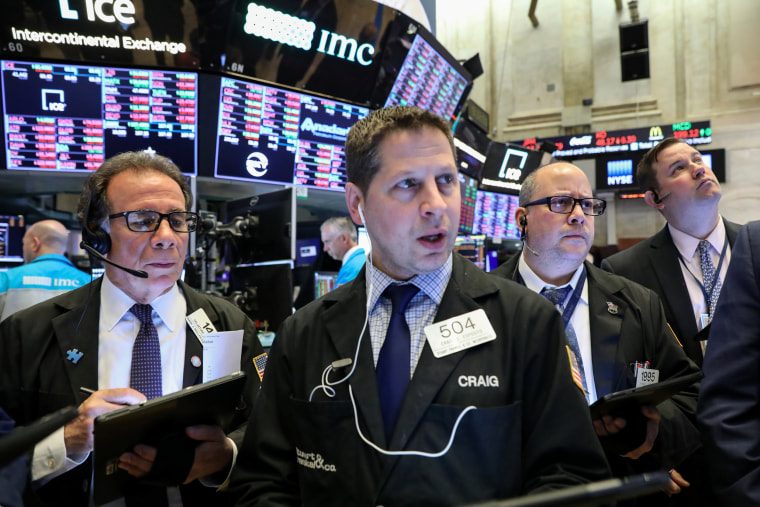The Dow Jones Industrial Average ended the day with a loss of 473 points as fears grew on Tuesday that the U.S. and China would not resolve their differences on trade.
Capping a day of remarkable volatility, the Dow hit its lowest level since January, closing at 25,966. At its low of the day, the Dow had plunged by as much as 648 points. The S&P 500 finished the day down 1.7 percent, and the Nasdaq Composite Index dropped 1.9 percent.
While all 30 members of the Dow registered declines, tech stocks — which have the greatest exposure to China — took the heaviest blows in the war between the world’s two largest economies.
Wall Street’s top investment banks have started to prepare clients for a “worst-case scenario,” CNBC reported Tuesday, with all banks predicting steeper losses to come. An all-out trade war would shave off 45 basis points from global economic growth.
The sell-off began on Sunday after President Donald Trump tweeted that he would slap tariffs on almost all imported goods from China as of Friday. Markets fell across the globe in response to the surprise renewal in trade tensions, with the Dow slipping by 471 points. Stocks rallied later on Monday, after China said it would still be sending a delegation to Washington this week to continue trade negotiations.
However, tension ratcheted up on Tuesday after U.S. Trade Representative Robert Lighthizer told reporters the U.S. would go ahead and raise tariffs on Chinese imports from 10 percent to 25 percent, starting on Friday. Treasury Secretary Steven Mnuchin said the reasoning behind that decision was that China had reneged on some details the two sides had already firmed up during previous rounds of negotiations.
Markets had settled into a period of calm in recent weeks after representatives from both sides continuously spoke of progress in the crucial talks.
Trade restrictions are having "adverse effects on confidence and investment plans around the world," warned the Organization of Economic Cooperation and Development earlier this year, noting that trade growth for 2018 slumped to 4 percent from 5.25 percent in 2017.
"Global growth is projected to ease further to 3.3 percent in 2019 and 3.4 percent in 2020, with downside risks continuing to build," the OECD concluded in a recent report. "High policy uncertainty, ongoing trade tensions, and a further erosion of business and consumer confidence are contributing to a global slowdown."

